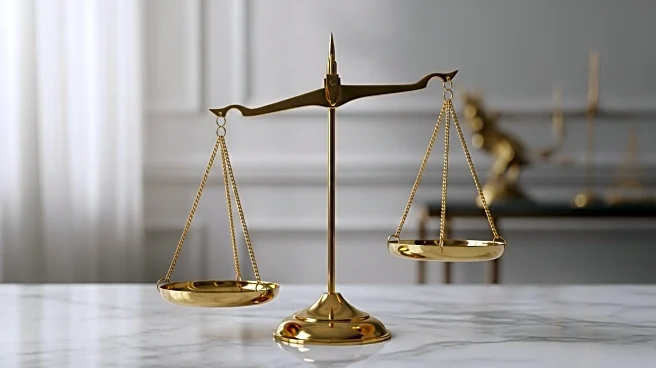What's Happening?
President Trump's trade adviser, Peter Navarro, has publicly criticized a recent federal appeals court decision that deemed most of Trump's tariffs illegal. Navarro described the ruling as 'weaponized partisan injustice' and warned that if the Supreme Court ultimately blocks these tariffs, it could signify 'the end of the United States.' The court's decision challenges a key component of Trump's economic strategy, which involves imposing reciprocal tariffs on various countries. The administration is preparing to argue its case before the Supreme Court, with Navarro expressing optimism about their chances, citing a strong dissent in the appeals court as a potential roadmap for the Supreme Court.
Why It's Important?
The court's ruling against Trump's tariffs poses significant implications for U.S. trade policy and the administration's economic agenda. If the Supreme Court upholds the decision, it could limit the president's ability to unilaterally impose tariffs, potentially affecting international trade relations and economic strategies. This legal battle highlights the tension between executive power and judicial oversight, with potential consequences for industries reliant on global trade. The outcome could influence future administrations' approach to trade policy and impact businesses that have adapted to the current tariff structure.
What's Next?
The next step in this legal saga is the Supreme Court's review of the case, which will determine the legality of Trump's tariffs. The administration is expected to present its arguments, emphasizing the economic rationale behind the tariffs. Political leaders and trade partners will be closely monitoring the proceedings, as the decision could reshape U.S. trade policy. Businesses affected by the tariffs may need to prepare for potential changes in trade regulations, depending on the court's ruling.









